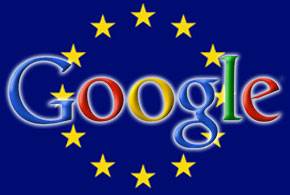A leaked document shows EU lawmakers working on new copyright and licensing protections for news publishers.
European Union lawmakers are considering a proposal that would let news publishers and copyright owners in member states hit companies like Google with fees for using their content in anchoring search results and delivering other services.
The proposal is one among many covering the rights of content publishers in the digital age contained in a leaked copy of a new copyright directive that EU lawmakers are considering.
The 23-page draft covers proposals for enhanced protections and rights for copyright holders in a variety of circumstances. One section pertains to the rights of EU news publishers in determining how their content can be used by online services such as Google that provide access to copyrighted content through search and other services.
Fortune reported the story first earlier this week.
News publishers face increasing problems in licensing the online use of their content by service providers and in recouping the costs associated with generating that content, the draft directive noted.
“The organizational and financial contribution of publishers in producing news publications needs to be recognized and further encouraged to ensure the sustainability of the publishing industry,” the directive said. Such protection can be effectively guaranteed only by introducing new requirements for the reproduction and use of copyright content by online services, it said.
The draft directive contains proposals that would also impact online services that store and provide access to copyrighted content uploaded by users—such as YouTube—without the involvement of the rights holders.
Such services “have flourished and become main sources of access to content online,” and have affected the ability for rights holders to determine when and how their content is used, the directive noted. Such services should be obliged to conclude licensing arrangements with copyright holders to ensure fair remuneration for their work.
The directive does not mention Google or any other online service by name. But as the world’s largest provider of the kind of services mentioned in the article, the company is likely to be among those most impacted by it if the proposals were to become law.
At least two EU member countries have tried similar proposals in past, and both failed to achieve anywhere close to the desired objective.
In 2013, German lawmakers introduced what was widely referred to as a “Google tax” that gave publishers in the country the right to ask Google and other search engine services and news aggregators for license fees for each snippet of news used to anchor search results.
VG Media, a consortium of the largest publishers in Germany, used the law to prevent Google from using images and content from their sites. Barely two weeks later, the group relented and removed the restrictions, citing a disastrous drop-off in overall traffic to member sites.
A similar attempt in Spain to let publishers charge Google and other online providers license fees for using news snippets in search results met with an equally disastrous result. Unlike the German law, the one in Spain did not give publishers an opportunity to opt out of a licensing agreement with the likes of Google if they wanted to. Instead, it required Spanish publications to mandatorily charge license fees on online services using their content.
In response, Google shuttered its news operation in Spain in late 2014. The move prompted the Spanish Newspaper Publishers’ Association, which was among the ones to have asked for the law, to ask the government to repeal it.







